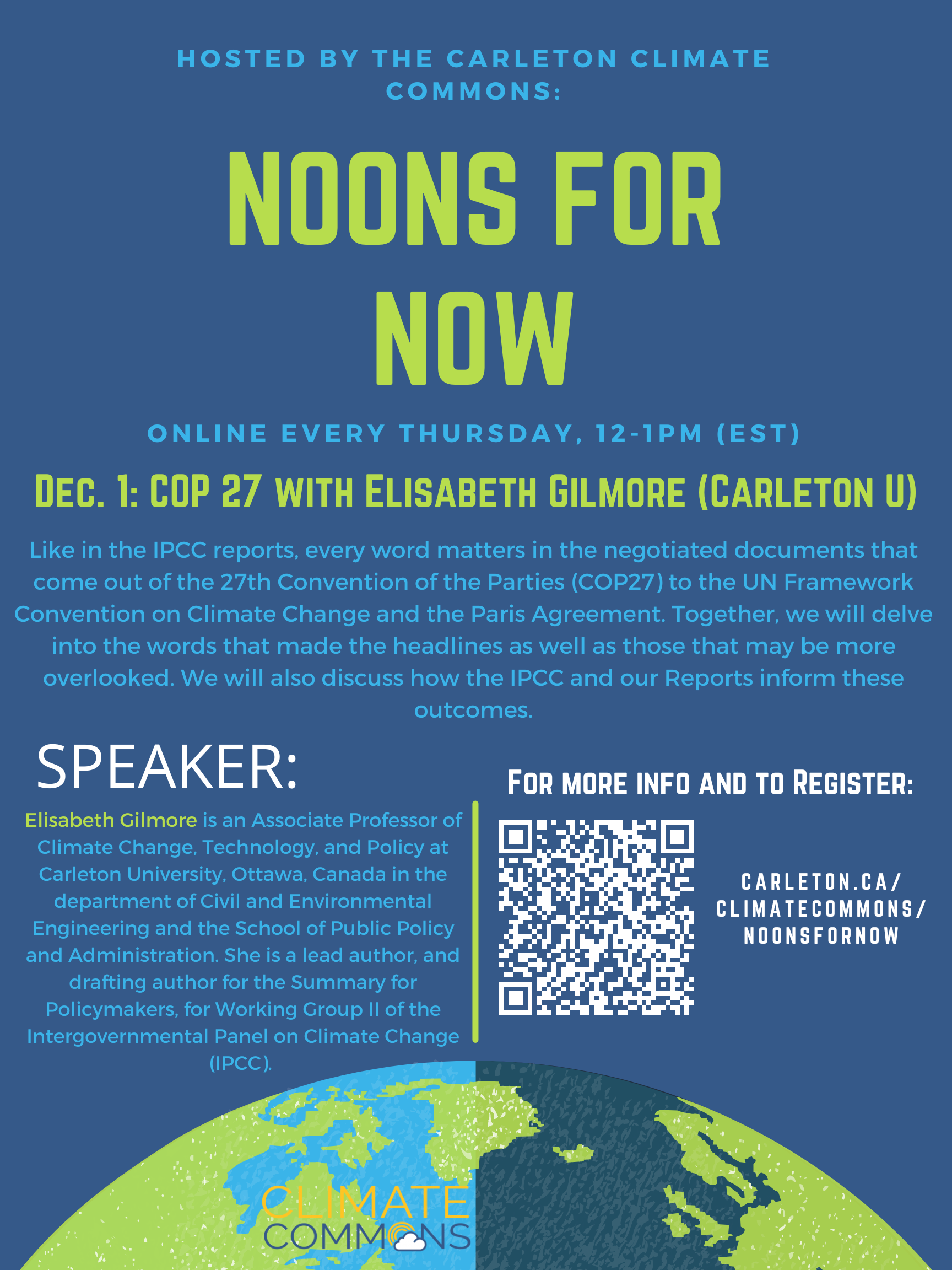
Like in the IPCC reports, every word matters in the negotiated documents that come out of the 27th Convention of the Parties (COP27) to the UN Framework Convention on Climate Change and the Paris Agreement. Together, we will delve into the words that made the headlines as well as those that may be more overlooked. We will also discuss how the IPCC and our Reports inform these outcomes.
Speaker:
Elisabeth Gilmore is an Associate Professor of Climate Change, Technology, and Policy at Carleton University, Ottawa, Canada in the department of Civil and Environmental Engineering and the School of Public Policy and Administration. Her research focuses on how technology availability and costs, perceptions of risk and benefits, finance, and governance facilitate or hinder climate mitigation and adaptation. Her current projects are looking at household decision-making and mobility in the face of sea level rise and extreme events, how non-state actors are interacting with climate governance in regions affected by violent conflict, and on integrating feasibility assessments of mitigation and adaptation options. Additionally, through her affiliation with the Peace Research Institute Oslo (PRIO), she is developing a new set of socio-political scenarios to evaluate climate risks, benefits, and costs. She is a lead author, and drafting author for the Summary for Policymakers, for Working Group II of the Intergovernmental Panel on Climate Change (IPCC). She is also a lead author on the first UNEP Climate Technology Progress Report. She holds a PhD from Carnegie Mellon University in Engineering and Public Policy and Chemical Engineering and a Master and Bachelor degree in Chemical and Environmental Engineering from the University of Toronto.
Resource List:
For more information on COP27:
World Resources Institute’s COP27 Resource Hub
International Institute for Sustainable Development (IISD) Earth Negotiations Bulletin (ENB)